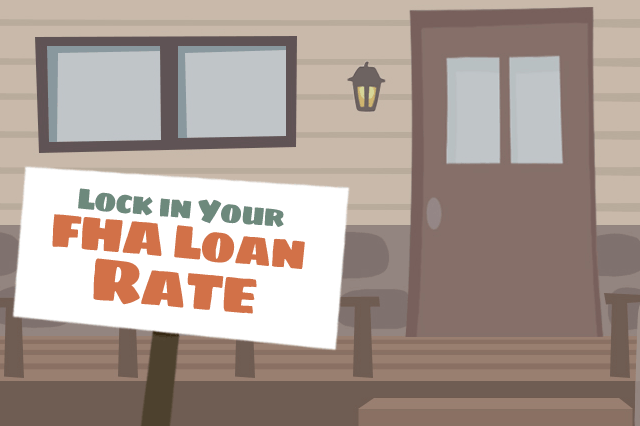Locking In FHA Home Loan Interest Rates

Interest rates fluctuate daily. Some changes are small, some are significant; it all depends on what happens in the markets each day. The rate you looked at this morning could change in the span of time it takes to have lunch and come back to check again.
This is normal, and borrowers new to the home loan process won’t always consider how much rates may change over time-even the space of a week or less.
That’s why home loans have a process called the mortgage rate lock. There are variations on this name, “mortgage loan rate lock commitment” and “mortgage lock” might be terms you hear in reference to this.
Locking in a mortgage loan interest rate with the lender requires you and the lender to commit in writing to a specific interest rate that is to be honored regardless of mortgage rate fluctuations or other factors. The rate lock will not be indefinite-there is a specific limited span of time that commitment will be applicable.
The mortgage rate lock is something the lender will likely add a service charge for, this is acceptable under FHA home loan rules in HUD 4000.1, which instructs the lender:
“The Mortgagee may charge the Borrower lock-in and rate lock fees only if the Mortgagee provides a lock-in or commitment agreement guaranteeing the interest rate and/or discount points for a period of not less than 15 Days prior to the anticipated closing.”
The actual duration of your mortgage rate lock may be longer than prescribed above depending on what you and the lender come to an agreement with; don’t assume you definitely will get more than 15 days without discussing the issue with your loan officer.
The most important thing to remember about all of this is that there are FHA loan minimum requirements, but there are also lender standards plus state/local laws which may also have a say in how your home loan transaction is carried out. You’ll need to discuss all the details of the interest rate lock process with your lender to see how that financial institution handles this process.
Mortgage rate lock periods expire, and some borrowers who experience complications with their loan due to unforeseen circumstances may face having to deal with the expiration of the mortgage rate lock before the loan can close. If you think this might happen to you, don’t delay-contact your loan officer to see what arrangements can be made with your agreement.
That may require a new mortgage rate lock agreement in writing, and you will need to understand the lender’s rules for this process should it be needed-be sure to ask at the time you negotiate your rate lock and know in advance what may be required.
------------------------------
RELATED VIDEOS:
Consider the Benefits and Risks of a Joint Loan
Borrowers Should Know About the Origination Fee
Everyone Needs to Pay Their Property Tax

Do you know what's on your credit report?
Learn what your score means.







